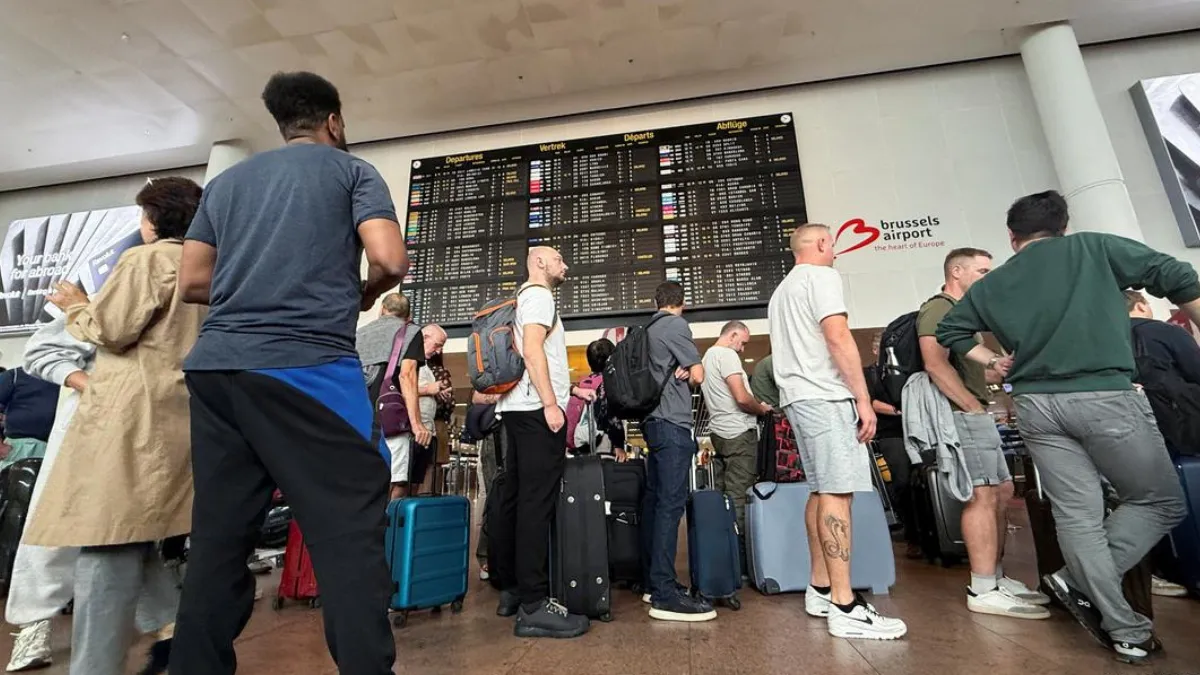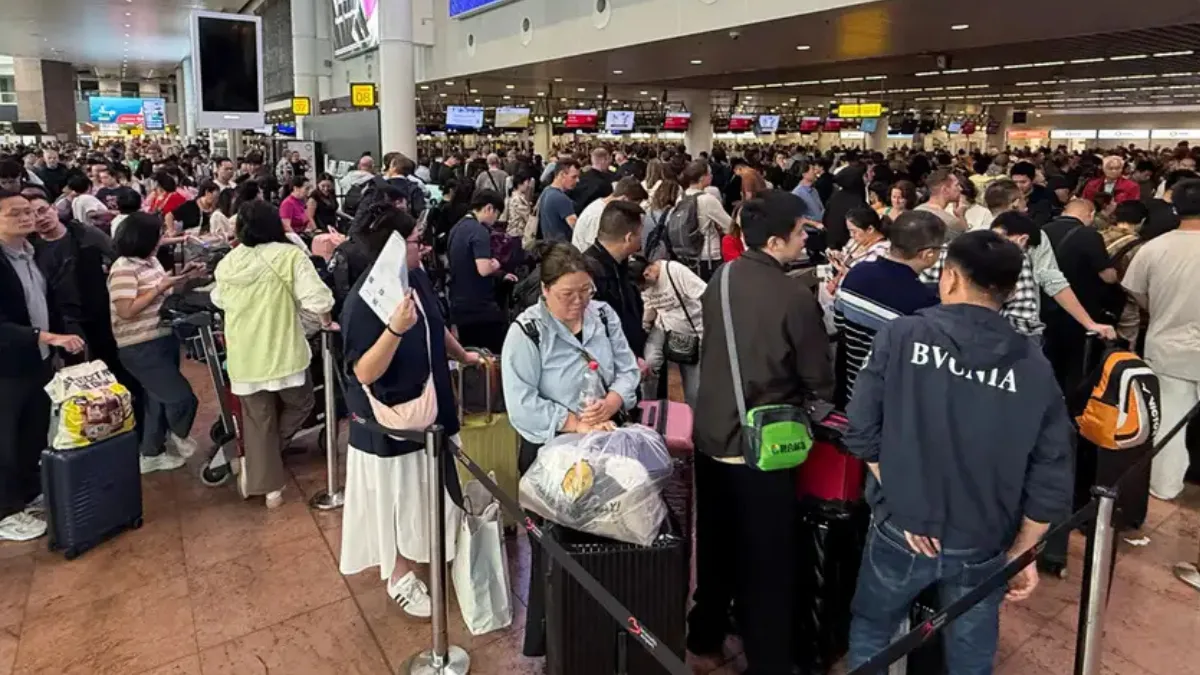Cyber attack European airports has triggered widespread chaos across major hubs including Brussels, Berlin, and London, causing long delays, flight cancellations, and a shift to manual operations. The attack, confirmed to have targeted a third-party service provider responsible for check-in and baggage systems, left thousands of passengers stranded and airlines scrambling to adjust schedules.
Disruptions Begin Across Europe

On Saturday, several European airports faced severe operational disruptions after a cyberattack struck the systems of Collins Aerospace, a key service provider for check-in and boarding processes. Brussels Airport was among the worst affected, asking airlines to cancel nearly half of their departing flights on Sunday to ease congestion and manage passenger safety.
The incident, which first emerged on Friday night, September 19, led to immediate flight delays and cancellations at London Heathrow, Berlin Brandenburg, and Brussels. Passengers encountered unusually long queues at counters as staff switched to manual check-in and boarding methods.
Brussels Airport Issues Official Statement
In an official update, Brussels Airport confirmed the cyberattack against its service provider and warned of a “large impact on the flight schedule.” The airport authority said that the disruption would “unfortunately cause delays and cancellations of flights,” adding that efforts were underway to restore full digital services.
The airport advised passengers scheduled to travel over the weekend to double-check their flight status with airlines before arriving at the terminal. This proactive step was meant to prevent overcrowding, as hundreds of flights risked delays.
Scale of Flight Cancellations and Delays
Aviation data provider Cirium reported that at least 29 departures and arrivals had already been canceled across Heathrow, Berlin, and Brussels airports by Saturday. To understand the scale of impact:
- Heathrow Airport had 651 departures scheduled for the day
- Brussels Airport had 228 departures scheduled
- Berlin Brandenburg Airport had 226 departures scheduled
Though only a portion of these were canceled outright, hundreds more faced delays, causing ripple effects across European air travel networks.
| Airport | Scheduled Departures (Sept 20) | Immediate Cancellations Reported | Current Status |
|---|---|---|---|
| London Heathrow | 651 | Several (Exact count rising) | Manual check-in at some counters |
| Brussels Airport | 228 | Dozens, plus half of Sunday flights canceled | Heavy delays, limited flights |
| Berlin Brandenburg | 226 | Several | Manual systems in use |
Service Provider Confirms Cyber-Related Disruption
Collins Aerospace, the U.S.-based service provider responsible for the MUSE software used in check-in and baggage handling, confirmed the attack. Speaking to AFP, the company acknowledged a “cyber-related disruption” that affected multiple airports across Europe, including Brussels, Berlin, and London.
In a statement, Collins Aerospace said:
“We have become aware of a cyber-related disruption to our MUSE software in select airports. The impact is limited to electronic customer check-in and baggage drop and can be mitigated with manual check-in operations.”
While the company did not specify the origin of the attack, it assured that teams were actively working to restore normal operations.
Passenger Experience: Long Queues and Confusion
Travelers across Europe described chaotic scenes inside terminals. Automated kiosks were shut down, baggage drop systems stalled, and many passengers had to queue for hours at manual counters. For those connecting to international flights, the delays caused missed connections, adding to frustration.
Airlines issued advisories requesting passengers to arrive early and stay updated through apps or websites. Some carriers even recommended rescheduling non-urgent travel to avoid the weekend rush.
Security Concerns and Aviation Industry Impact
The cyber attack European airports highlights once again the vulnerability of critical aviation infrastructure to digital threats. Airports rely heavily on automated systems for efficiency, and any disruption can cause cascading effects across multiple countries.
Experts note that such incidents raise questions about the robustness of cyber defenses in the aviation sector. With growing reliance on cloud-based and third-party systems, even a targeted strike on one service provider can ripple through the global travel network.
Also read: Kissing Bug Disease Becomes a Growing Threat in the United States: Experts Raise Alarm
Efforts to Restore Services
Authorities have confirmed that manual check-in processes remain functional, allowing flights to operate, albeit at a slower pace. Collins Aerospace stated that it is actively investigating the breach and working closely with airports to restore normalcy.
Airports across Europe continue to advise passengers to stay informed about flight schedules. Brussels Airport, in particular, has urged travelers scheduled for Sunday departures to confirm their flight status before heading to the terminal.
Also read: mmrv vaccine cdc: CDC Panel Recommends Restricting Use of MMRV Vaccine for Children Under
What Happens Next?
While most flights are expected to resume, the backlog caused by Saturday’s delays could take time to clear. Industry analysts predict continued disruptions over the next few days until systems are fully restored.
For passengers, the main takeaway remains to check with airlines in advance and plan extra time for check-in. For the aviation industry, this incident is a reminder of the urgent need to invest in cybersecurity resilience to safeguard air travel in an increasingly digital world.














